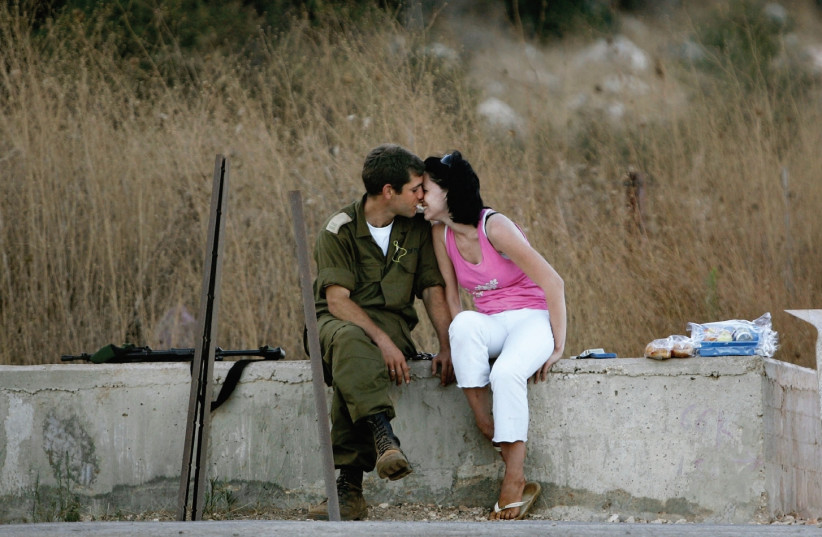A poll conducted among members of Israel's National-Religious sector found that less than a third (28%) of respondents believe that it is important to continue to fight to fully uphold the practice of shmirat negiya – refraining from touching members of the opposite sex before marriage.
An additional 38% said that it is important to fight to maintain this practice "as much as possible," while 16% said that it depends on age and 18% said it is not important.
Respondents were answering a poll put out by Srugometer, a project that works to stay up to date on trends in the National-Religious community through polling on a variety of issues and works in cooperation with the Zefat Academic College.
Respondents were also asked to say who they thought should pay for the first date. More than half (59%) of women saying that the cost should be split between both people on the date and 41% said the man should pay. Among male respondents, just 38% said that both people should split the cost and 62% said that the man should pay.
When asked what is the right way to address the phenomenon of people staying single until older ages, 55% said it was important to recognize the situation and provide solutions for single people, while 19% said we should act to change the situation and make the age of marriage earlier. Some 26% of respondents said that they did not know.

Of those who said that it is right to change the situation, some 36% were national orthodox, 14% were "Masorti" (traditional), 19% were national-haredi (ultra-Orthodox), 7% are formerly religious and 8% are "Dati Light," or mildly religious.
Over 2,000 people responded to the poll, 73% of whom defined themselves as religious, 9% said they were national-haredi, 4% traditional, 4% formerly religious and 10% Dati Light.
Some 28% of respondents had a high school education, 18% had non-academic, upper level education, 36% had a first degree and 18% had a second degree or higher.
